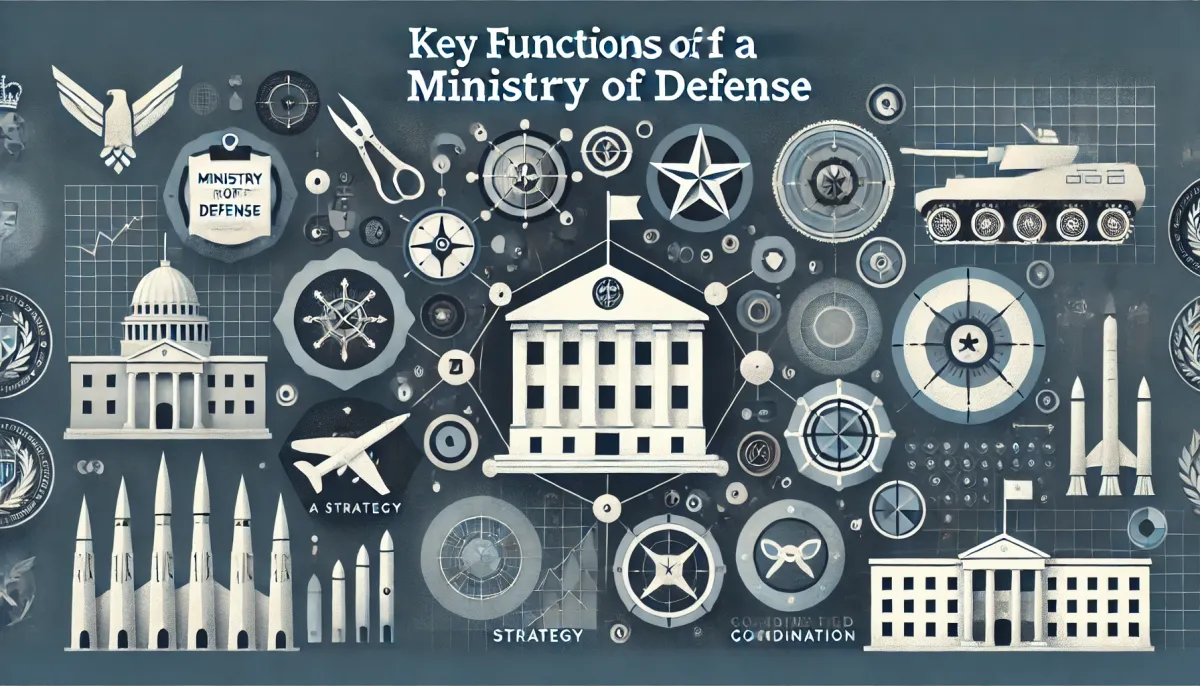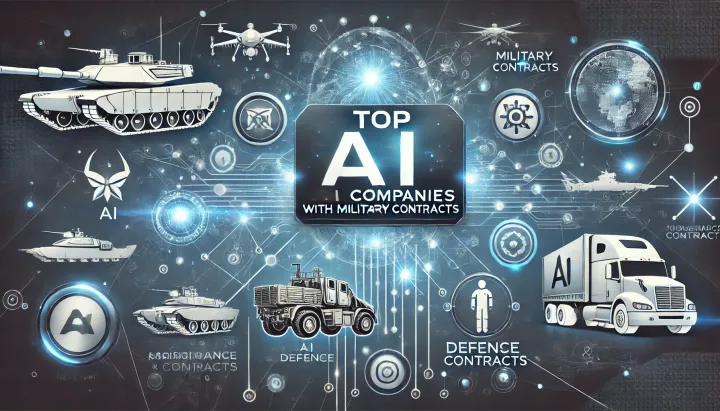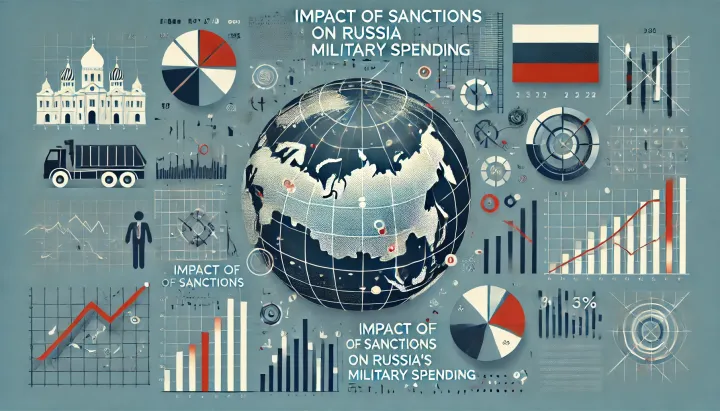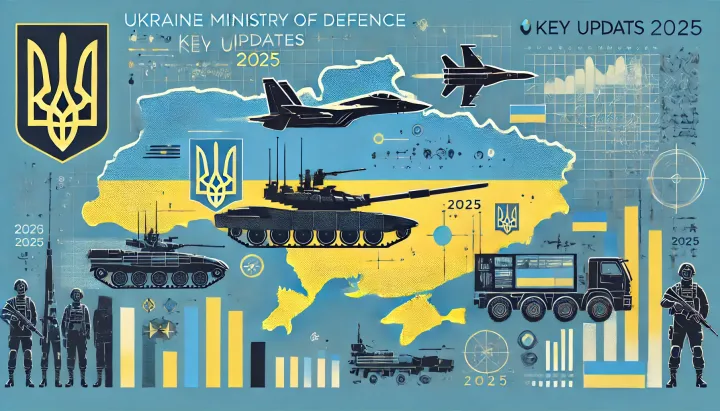Understanding the Role of the Ministry of Defense
This article delves into the multifaceted responsibilities of the MoD, underscoring its influence on military affairs, strategic operations, and defense policy formulation. The Ministry's responsibilities are deeply intertwined with domestic security measures and international diplomatic strategies.

In a world where national security is paramount, the Ministry of Defense (MoD) plays an indispensable role in safeguarding the sovereignty and interests of a nation. This comprehensive overview delves into the multifaceted responsibilities of the MoD, underscoring its influence on military affairs, strategic operations, and defense policy formulation. The Ministry's responsibilities are deeply intertwined with both domestic security measures and international diplomatic strategies, making it a pivotal institution in maintaining global stability.
The Core Functions of the Ministry of Defense
The Ministry of Defense is the backbone of national security, tasked with formulating defense policies and overseeing the armed forces. Its primary functions extend beyond the simple oversight of military operations to include a range of strategic, operational, and logistical responsibilities that are critical to national defense.
National Security and Defense Policy
The Ministry of Defense is instrumental in crafting and implementing defense policies that align with national interests. This involves a comprehensive assessment of potential threats, ranging from conventional military threats to more asymmetric challenges such as cyber warfare and terrorism. It also entails devising robust strategies to counter these threats, ensuring that the armed forces are not only prepared for conventional warfare but also adaptable to new forms of conflict. The MoD's policies are dynamic, continuously evolving in response to global security landscapes and technological advancements, which necessitates ongoing analysis and strategic foresight to anticipate and mitigate potential risks.
Oversight of Armed Forces
An essential responsibility of the MoD is the administration and oversight of the armed forces. This includes the recruitment and training of military personnel, ensuring that they are equipped with the necessary skills and knowledge to maintain a state of readiness. It also involves equipping the forces with cutting-edge technology and resources necessary for modern warfare, which requires significant logistical and financial planning. The MoD's oversight ensures that the armed forces are not only adequately resourced but also strategically aligned to execute national defense strategies effectively, maintaining a continuous state of preparedness against both traditional and non-traditional threats.
Military Strategy and Operations
Developing military strategies and executing security operations are critical functions of the MoD. This involves collaboration with military leaders to plan and conduct operations that safeguard national interests, which may include both defensive and offensive strategies. The Ministry must also coordinate with international allies to address global security challenges, participating in joint military exercises and peacekeeping missions as needed. This requires careful diplomatic engagement and strategic planning to ensure that military operations align with broader national and international security goals. Moreover, the Ministry's role extends to disaster response and humanitarian assistance operations, further illustrating its comprehensive impact on national and international stability.
The Ministry of Defense and Budget Allocation
The defense budget is a critical aspect of the Ministry of Defense's responsibilities. Budget allocations dictate the scale and scope of military operations, the procurement of advanced technology, and the overall readiness of the armed forces. Effective budget management is essential to ensure that national defense objectives are met efficiently and sustainably.
Strategic Resource Management
The MoD must judiciously manage the defense budget to optimize the allocation of resources. This includes prioritizing spending on essential military equipment and infrastructure, as well as investing in technological advancements that enhance the nation's defense capabilities. It also involves ensuring that personnel training is comprehensive and ongoing, adapting to new threats and technologies as they emerge. Effective resource management ensures that the military remains capable and responsive to emerging threats, with a focus on both current readiness and future innovation.
Balancing Defense Expenditure
The Ministry faces the challenge of balancing defense expenditure with other national priorities, such as healthcare, education, and infrastructure development. It must justify its budgetary needs while ensuring that funds are utilized efficiently, which involves a delicate balance of strategic necessity and fiscal responsibility. Rigorous financial planning and accountability are essential to maintain public trust and support for defense initiatives, requiring transparent communication and regular assessments of budgetary allocations and outcomes.
Technological Investment and Innovation
Investment in technology is a crucial element of the defense budget, as it underpins the development of advanced military capabilities. The MoD is responsible for identifying and investing in cutting-edge technologies that can provide a strategic advantage, such as artificial intelligence, cybersecurity, and unmanned systems. This requires collaboration with industry and academia to foster innovation and ensure that the armed forces remain at the forefront of technological advancements, enabling them to respond effectively to both current and future security challenges.
The Ministry of Defense in International Context
Understanding the role of the Ministry of Defense also requires a global perspective. Ministries of Defense worldwide share similar responsibilities but operate within different political, cultural, and economic contexts. This global context influences how defense strategies are formulated and implemented, impacting international relations and security collaborations.
The Russian Ministry of Defense
The Russian Ministry of Defense, for instance, plays a pivotal role in shaping the military strategy of one of the world's largest armed forces. It is responsible for maintaining Russia's extensive military capabilities, ensuring the nation's strategic interests are defended globally. This involves not only the development of a powerful and technologically advanced military but also the implementation of strategic policies that reflect Russia's geopolitical goals and challenges. The Russian MoD's approach to international defense relations and military operations provides insights into the complexities of managing a large and influential defense apparatus.
Global Defense Collaborations
International collaborations are vital for addressing global security challenges. The Ministry of Defense engages in partnerships with other nations, participating in joint military exercises and contributing to international peacekeeping efforts. These collaborations enhance strategic capabilities and foster global peace and stability by building mutual trust and understanding among nations. Engaging in multilateral defense initiatives and security alliances allows the MoD to leverage shared resources and expertise, strengthening collective security and creating a united front against common threats.
Comparative Defense Strategies
Different countries adopt varied defense strategies based on their unique geopolitical circumstances, cultural values, and historical experiences. By comparing these strategies, the MoD can gain valuable insights into alternative approaches to defense and security, which can inform the development of more effective policies and operations. This comparative analysis allows for the identification of best practices and innovative solutions that can enhance national security while contributing to international peace and stability.
The Ministry of Defense Website: A Digital Resource
In the digital age, the Ministry of Defense website serves as a crucial platform for communication and transparency. It provides updates on defense policies, military operations, and other pertinent information to the public and international community. The website's role is not only informational but also strategic, serving as a tool for public engagement and policy dissemination.
Enhancing Public Engagement
The MoD website is designed to enhance public engagement by offering insights into defense initiatives and strategic goals. By providing accessible information on military affairs and defense policies, the website fosters transparency and accountability, encouraging informed public discourse. It also serves as a platform for public feedback and consultation, enabling citizens to engage with defense policy development and contribute to national security discussions.
A Hub for Defense Information
As a hub for defense information, the MoD website features reports, policy documents, and updates on military affairs. It serves as a resource for understanding the Ministry's strategic priorities and operational achievements, offering detailed insights into defense strategies and initiatives. The website also provides educational materials and resources for researchers and policy analysts, supporting the study and analysis of defense and security issues.
Digital Innovation and Security
The MoD website must also prioritize digital innovation and security, ensuring that it remains a secure and reliable platform for information dissemination. This involves implementing robust cybersecurity measures to protect sensitive information and prevent unauthorized access. The website must also adapt to new digital technologies and trends, enhancing its functionality and user experience to remain an effective tool for communication and engagement.
Challenges and Future Outlook for the Ministry of Defense
Despite its critical role, the Ministry of Defense faces numerous challenges that impact its effectiveness and future outlook. These challenges are diverse, ranging from technological advancements to emerging security threats, and require strategic foresight and adaptability to address effectively.
Adapting to Technological Advancements
The rapid pace of technological advancements presents both opportunities and challenges for the Ministry of Defense. Integrating new technologies into military operations requires significant investment and adaptation, necessitating ongoing research and development efforts. The MoD must remain at the forefront of innovation to maintain a strategic advantage, ensuring that the armed forces are equipped with the latest tools and capabilities to address evolving threats.
Addressing Emerging Threats
Emerging threats, such as cyber warfare and terrorism, require the MoD to continuously adapt its strategies and operations. Developing robust cyber defense capabilities and counter-terrorism measures are essential for safeguarding national security, necessitating comprehensive threat assessments and strategic planning. The MoD must also collaborate with international partners to address these threats, sharing intelligence and resources to enhance collective security and resilience.
Ensuring Sustainable Defense Policies
Sustainable defense policies are crucial for long-term national security. The Ministry must balance immediate defense needs with future challenges, ensuring that policies remain relevant and effective in an ever-changing security landscape. This involves strategic planning and policy development, informed by ongoing assessments of security threats and geopolitical trends, to ensure that defense initiatives are sustainable and aligned with national and international security goals.
Conclusion
The Ministry of Defense is a cornerstone of national security, responsible for shaping defense policies, overseeing military operations, and managing resources. Its role is complex and multifaceted, requiring strategic foresight and adaptability to address the diverse and evolving challenges of modern security. As global security dynamics continue to evolve, the MoD must continue to innovate and collaborate internationally to ensure the safety and prosperity of the nation, fostering peace and stability in an increasingly interconnected world.



